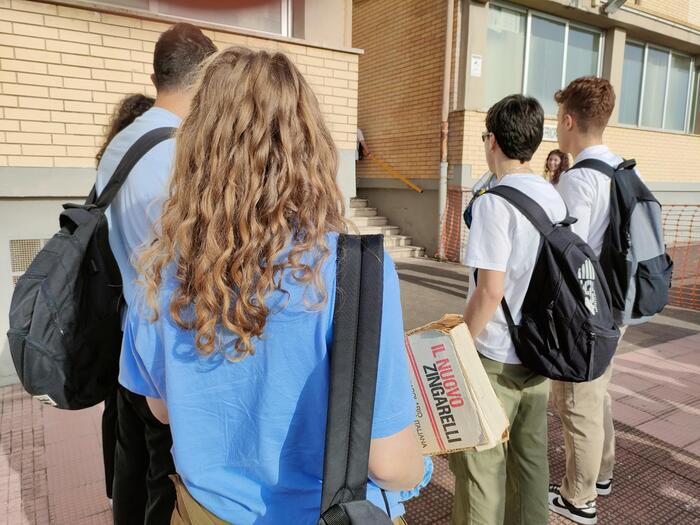Artificial intelligence divides teachers: 52%, especially among those over 55, are against its use while 48% - mostly under 35 - are in favor.
This is what emerges from the survey carried out by Swg for the Teachers' Guild presented today in Rome together with the coordinator Rino Di Meglio.
Most teachers consider AI useful for school bureaucracy (44%) such as for absences, grades or correcting tests;
for programs and teaching materials (41%);
for teacher training (37%).
But for 47% of teachers there are more risks than opportunities with regards to classroom teaching, for 55% then for the relationship between school and family and for 63% for carrying out homework.
According to the study, for over half of teachers artificial intelligence can enhance the profession (for 56%), especially among the youngest (66% among those under 35).
For 29 percent, however, AI is considered a threat: among high school teachers there are the greatest concerns.
"We at the Teachers' Guild are convinced that AI can be a valuable tool for schools, but that it is necessary to use it in a conscious and responsible way. However, it is important that the role of the teacher, protagonist of the educational process, is not diminished or even replaced".
Thus the national coordinator Rino di Meglio.
"The survey confirms that artificial intelligence is a revolution that is changing the world - he continues - and that it cannot be ignored by the school system, despite the fact that a strong division between those in favor and against persists".
The survey, which was carried out on a sample of 600 Italian teachers, also examined the issue of differentiated autonomy.
The majority of teachers, 54 percent - especially from secondary schools and from the Centre-South, 63 percent in this case - are against it.
1 in 3 teachers are in favour, 35 percent, and these are mainly teachers from Northern Italy who make up 47 percent.
"We agree with the teachers, differentiated autonomy, as we have always maintained, undermines the foundations of an inclusive school system and risks disintegrating the national system with many educational and training systems, it would mean crystallizing the differences instead of improving. Not only that, there is also a cultural problem, if we accentuate divisions in a country that is already too divided, we risk creating a serious problem", highlights Di Meglio.
Then there is skepticism - especially in middle schools - regarding the scholastic autonomy that the management has attributed to the principals.
According to the survey, a reform that provides for the election of the principal by the teachers every 4 years would be favorably welcomed.
63% express a positive opinion.
The survey also asks for an opinion on the introduction of a Higher Teaching Council to monitor the correct use of disciplinary sanctions: 55% of teachers are in favour.
The establishment of an external supervisory body for the evaluation of disciplinary sanctions for teachers is instead viewed negatively - by 44 percent.
Furthermore, 73% do not want a school-company and 7 teachers out of 10 do not like the merging of institutes.
As regards the role of families, according to 9 out of 10 teachers, parental interference damages the growth of students and undermines the constitutional principle of freedom of teaching.
For 8 out of 10, interference is permissible only in extreme cases.
Regarding the reduction of the school curriculum from 5 to 4 years for high school, 7 out of 10 teachers say they are against it.
Reproduction reserved © Copyright ANSA

